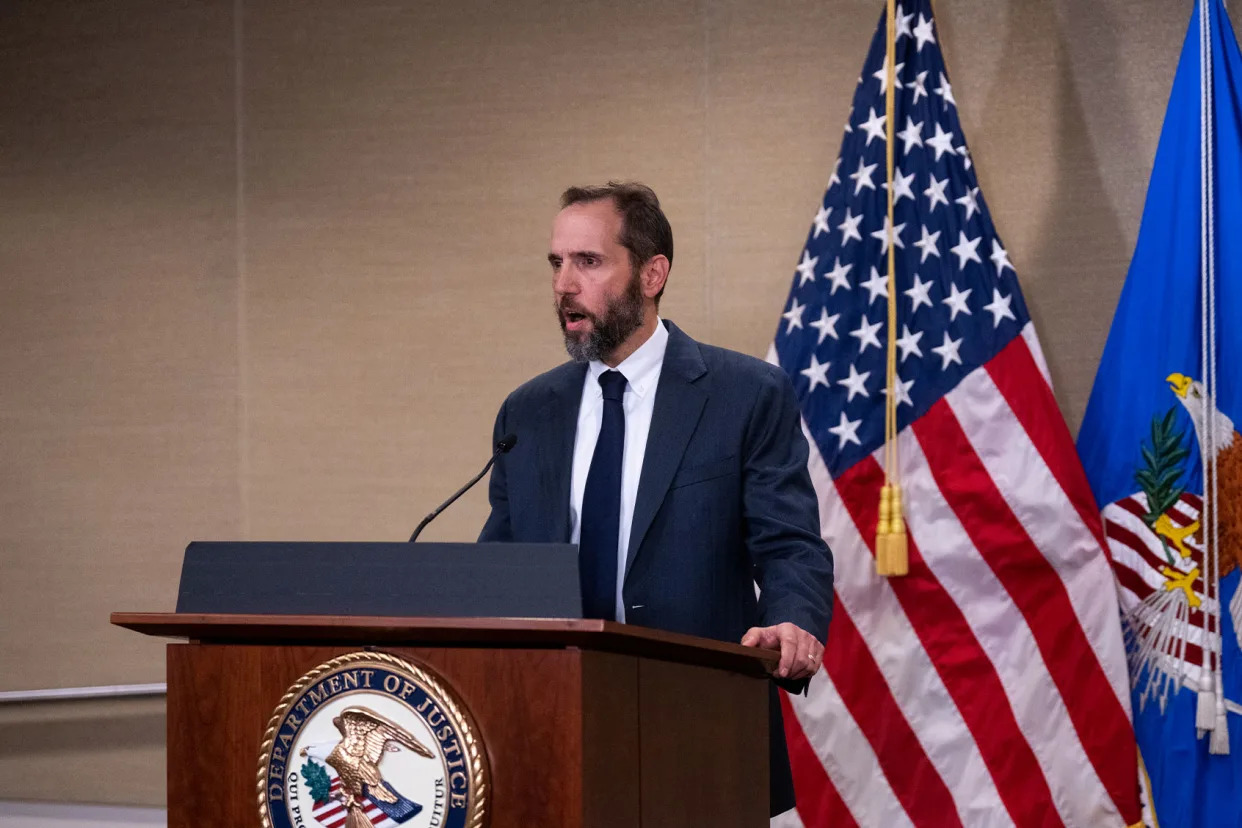Reuters
US Senate unveils $118 billion bill on border security, aid for Ukraine, Israel
Richard Cowan and Costas Pitas – February 4, 2024
WASHINGTON (Reuters) -The U.S. Senate on Sunday unveiled a $118 billion bipartisan border security bill that would also provide aid to Ukraine and Israel, but it promptly slammed into opposition from the House of Representatives.
“I urge Congress to come together and swiftly pass this bipartisan agreement,” President Joe Biden said, also praising the migration measures in the bill, which took months to negotiate.
However, House of Representatives Speaker Mike Johnson declared it “dead on arrival” if it reaches his chamber.
“This bill is even worse than we expected, and won’t come close to ending the border catastrophe the president has created,” he said in a statement on X, formerly called Twitter.
The Democratic and Republican Senate backers of the wide-ranging U.S. border security and foreign military aid bill pledged to push ahead, despite opposition by Donald Trump as well.
Senate Majority Leader Chuck Schumer said he would take steps to hold an initial vote on the bill on Wednesday.
If the bill were to become law, it would mark the most significant changes in U.S. immigration and border security in decades.
Some progressive Democrats are angry the measure does nothing to provide a pathway to citizenship for the 11 million undocumented people who have lived in the U.S. for many years, including “Dreamer” immigrants who were brought in as children.
Independent Senator Kyrsten Sinema told reporters the legislation would secure the U.S. southern border, including by requiring the Department of Homeland Security to temporarily “shut down” the frontier to most migrants if there are an average of more than 5,000 crossing attempts per day over seven days.
Republican Senator James Lankford, one of the negotiators on the bill, said that the border likely would remain closed for at least three weeks as the numbers of arriving immigrants drop significantly.
In addition to $20.23 billion for border security, the bill included $60.06 billion to support Ukraine in its war with Russia, $14.1 billion in security assistance for Israel, $2.44 billion to U.S. Central Command and the conflict in the Red Sea, and $4.83 billion to support U.S. partners in the Indo-Pacific facing aggression from China, according to figures from Senator Patty Murray, who chairs the Senate’s Appropriation Committee.
An additional $10 billion would provide humanitarian assistance for civilians in conflict zones including in Ukraine, Gaza and the West Bank, although the bill includes a provision barring its funds from going to the U.N. agency for Palestinians, UNRWA. The Biden administration and other nations have paused funding to the agency over allegations that some of its staff were involved in Hamas’ Oct. 7 attacks in southern Israel.
“The priorities in this bill are too important to ignore and too vital to allow politics to get in the way,” Schumer said in a statement. “The United States and our allies are facing multiple, complex and, in places, coordinated challenges from adversaries who seek to disrupt democracy and expand authoritarian influence around the globe.”
The key overseas security provisions of the bill largely match what Biden requested from Congress in October, when he asked for additional funds for aid for Ukraine, Israel and Taiwan.
That request has been stalled by House Republicans’ insistence that it be tied to a shift in immigration policy.
With House Republicans divided over how to address the huge number of immigrant arrivals and whether to provide Ukraine with any more aid, Johnson on Saturday said he plans to hold a vote this week on a new bill providing $17.6 billion in military assistance to Israel. That measure has no new funding for Ukraine or for U.S. border security.
Meantime, Lankford said he would engage with Johnson in hopes of more House support for the Senate bill.
Schumer said the agreement would provide more frontline personnel and asylum officers and provide “faster and fair” immigration decisions. Lankford told reporters it would fund as many as 50,000 immigrant detention beds, up from the current 34,000.
The bill’s proponents said it would end the controversial “catch-and-release” practice that critics said contribute to high numbers of illegal immigrants arriving at the southern border. It would do so by speeding up the adjudication of asylum cases instead of quickly releasing apprehended migrants and allowing them to stay in the United States for years while they await hearings.
Mitch McConnell, the top Senate Republican, has supported the negotiations, saying Republicans would not get a better deal under a Republican White House.
“The Senate must carefully consider the opportunity in front of us and prepare to act,” McConnell said in a statement.
Schumer said in a news conference that he had never worked so closely with long-term Senate colleague McConnell as on the bill.
“At many occasions we thought the negotiations had fallen apart,” Schumer said.
RIGHT-WING OPPOSITION
Nonetheless, right-wing Republicans are skeptical of the new Senate bill.
“Here’s what the people pushing this ‘deal’ aren’t telling you: It accepts 5,000 illegal immigrants a day and gives automatic work permits to asylum recipients — a magnet for more illegal immigration,” House Majority Leader Steve Scalise said on X.
Other congressional Republicans have said Biden can enact many of the changes they want to immigration policy through executive action, though they had previously called for legislative action.
Immigration is the second largest concern for Americans, according to a Reuters/Ipsos poll published on Wednesday, and is a top issue for Republicans specifically. The U.S. Border Patrol arrested about 2 million migrants at the border in fiscal year 2023.
Trump, the frontrunner for the Republican nomination to challenge Biden in the November election, has campaigned heavily on opposition to immigration. House Republicans are also pushing ahead with an effort to impeach Biden’s top border official, Homeland Security Secretary Alejandro Mayorkas.
(Reporting by Richard Cowan and Costas Pitas; Additional reporting by Patricia Zengerle and Makini Brice; Writing by Simon Lewis; Editing by Scott Malone, Rosalba O’Brien, Lisa Shumaker and Himani Sarkar and Miral Fahmy)





